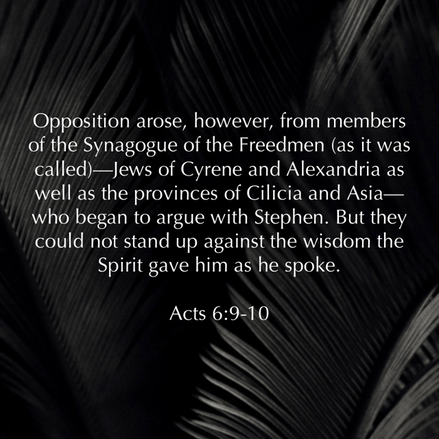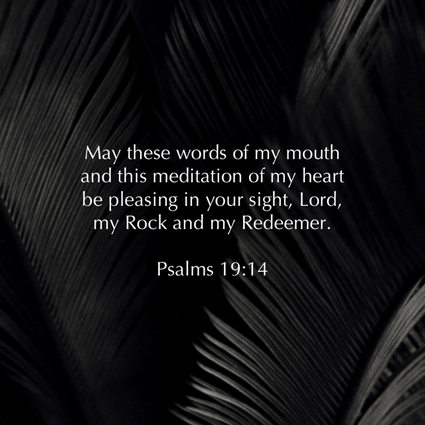|
Good morning! We're so glad you've decided to join us today! When we meet together in person, we share our joys and concerns with each other before we focus on our Sunday school lesson. Think about your needs and concerns right now, and if you like, you can share them in the comments. Today’s lesson is Psalm 100. It is a brief psalm that calls the earth all its people to offer God unbridled worship, praise and thanksgiving for God’s faithful and unending care and love. Our Sunday school and church is now open so that we can join to worship God, to learn about God’s word and to encourage each other in person. We are grateful to be back together, but we continue to pray for those who not yet able to participate in person or who do not yet feel comfortable participating in person. We are glad that those who cannot be with us physically are able to learn and worship with us here online. The following prayer was written by Deb Wolf and posted on her website, “Counting My Blessings at the Intersection of Faith and Life.” More of her prayers and blog posts can be found at her site, How to Be Prepared & Stand Strong When It's Hard to Follow Jesus - CMB. Let’s pray together. Father, we thank You and praise You. You alone are God. You are the Creator of everything. We lift Your name high and worship Your holy name. Help us to serve You with joy. Help us to love You with all our hearts, souls, minds, and strength. Help us to love ourselves as You love us. Help us to love others as we love ourselves. Help us to live humbly as we follow You, our Shepherd. You are good and full of mercy. You are faithful always. Your grace and love cover each generation with forgiveness and hope. You are Lord of all. You are Father, Son, and Spirit…. forever and ever and always. We worship You. We praise You. Amen. This week's lesson is on Psalm 100. Introduction When we began this quarter on praise, we noted that the Bible offers examples of praise in two ways. First, it shows how people of faith have offered praise to God in their own historical contexts. We saw examples of that in our lessons over the past four weeks, from the Israelites praising God after their escape from Egypt to the early church praising God after Pentecost. This morning we begin five lessons from the book of Psalms, which do not usually give a historical context but rather call every person of faith to praise God in whatever context they find themselves. The Sunday school lesson calls these examples of “direct praise”. There was a time at North Buffalo Church when “The Old One Hundredth” was a part of virtually every worship service. For those who remember those times, the brief hymn can still lift our spirits. The sound of the majestic organ strains accompanied the worshippers, who repeated the call to “Praise God from whom all blessings flow.” Today, it seems, most congregations who still sing “The Old One Hundredth” use an alternate version of the hymn, which begins, “All people that on earth do dwell.” In either case, the hymns are a broad call for everyone and everything to praise God, which is in keeping with the spirit and message of Psalm 100. Lesson context The organization of Psalm 100 is a variation on the standard psalm structure known as the hymn, or praise, psalm. The standard structure consists of a summons to praise the Lord followed by reasons for that praise. This type of psalm first appears in Exodus 15:21 as Miriam and the women of Israel sang after the Israelites’ escape from Egypt. We looked at that song in our first lesson this quarter. The author of Psalm 100 varied that patter by using two invitations to praise, each followed by a motivation for praise. Conspicuous in Psalm 100’s design are seven commands. The fourth command occupies the central position in the psalm — to know that the Lord is God. And although Psalm 100 does not explicitly celebrate God as king, it nevertheless shares some affinity with another type of psalm known as divine kingship psalms. Such psalms speak of the Lord’s rule over the cosmos or nations. A Call to All (verses 1 and 2) The command to “shout for joy” appears in exactly these Hebrew words only here and Psalm 98:4, although there are similar phrases in Psalm 66:1, 81:1 and 95:1. This indicates a call for unhindered praise, which also may include clapping (47:1), singing (98:4) and the use of instruments (98:5-6). The psalmist expects both volume and excitement. But this call is not just to Israel. It is to all the earth, to the entire world. The psalmist anticipated a day when people everywhere would come to know the Lord and would offer the Lord their praise. It is a theme that appears frequently in the Psalms and in other Old Testament books as well. The author believes that Psalm 100:2 alludes to the exodus and to how service to God stands in contrast to service to Pharoah. This is a bit confusing because our text for today begins with the phrase, “Worship the Lord with gladness.” This seems to be because the New International Version of the Bible translates the first word of verse 2 as “worship,” but most other versions translate it as “serve.” Even though the Sunday school lesson uses the NIV, the author writes his commentary as though it is “serve.” “Serving the Lord therefore suggests a contrast between Israel’s service to God and the nation’s service to Pharoah,” he writes. “Whereas labors for Pharaoh caused the people to cry out to God in distress, service to God is accompanied by gladness.” There may be a reason why the NIV translates the Hebrew word as “worship,” but I was not able to find a commentary that addressed it. After consulting a Hebrew concordance, it seems to me that the better translation is “serve,” which makes the connection to the exodus a bit more understandable. The point, it seems to me, is that serving the Lord is not burdensome, but it brings joy and gladness. However, the same could be said for worshipping the Lord. It is something that we look forward to, not a duty that we must discharge. The author describes it as something we “get to do,” not something that we “have to do.” II. A Call to Know (verse 3) Psalm 100 is full of imperatives: Shout! Serve! (or worship), Enter! Praise! Bless! Another one begins verse 3 — Know! This is a command that provides a rationale for all the other commands. That is because it signifies more than intellectual perception. Joel LeMon, a professor of Old Testament at Emory University, writes about this on the Working Preacher website: “We typically understand “knowing” to be an internalized mental process rather than a specific action to which one can be summoned. Yet the Hebrew word “to know” (yd‘) actually suggests something more. This term is used in several contexts (Genesis 4:1 and 1 Kings 1:4) to describe an embodied mutual awareness that comes through sexual intercourse. To be clear, a sexual knowledge is probably not in view in this context. However, the larger usage of the verb “to know” in the Hebrew Bible suggests that the people’s knowledge of Yahweh’s identity is not merely intellectual assent. It is a deep and intimate awareness of God’s identity as revealed to a particular people.” In their ritual procession of praise, the people embody that deep understanding that God is the Lord of all and that no one on earth can rightly make. That was true for ancient Israel, and it is still true today for the people of God. The psalmist reminds the people of Israel why they know God. It’s because God made them, not just in creation, but as a nation. God is the true king, which was often described in terms of a shepherd in the ancient Near East. Israel belonged to God, and they were God’s sheep. As in the familiar 23rd Psalm, this implies that would guide, protect and provide for them. Jesus also used the image of a shepherd to refer to himself. The church is God’s flock, and the elders are called to care for and to protect it as Christ does. III. A Call to Thanksgiving (verses 4 and 5). Gates, courts and courtyards are mentioned together dozens of times in the Old Testament. The gates refer to the entrances to the temple grounds, and the courts are the areas in proximity. The temple complex included two temple courts — an inner courtyard known as the “courtyard of the priests” and an outer courtyard that evidently surrounded the entire complex and was known as the “great courtyard.” It is into this outer court that the psalmist envisioned the congregation entering. The approaching worshippers were to bring offerings of thanksgiving and praise for what God had done for them. Question: North Buffalo Church often holds a Thanksgiving Eve service. Do you think the church might use Psalm 100 in a creative way for that service or for a service near the Thanksgiving celebration? The final verse of this psalm is a reminder of God’s goodness and enduring love and faithfulness. This is a relationship that began long ago and that God’s people can trust in for their children, grandchildren and every succeeding generation. Although the people will go through hardships, God will never abandon them. The people of Israel understood that God’s grace and mercy would not be removed on a whim. We can rely on God’s presence and God’s faithfulness in the same way because God reliable. Conclusion Enthusiastic joy is fitting for those who have come to experience God as described in Psalm 100. Here the psalmist calls the reader to a life of joyous thanksgiving and praise in the presence of the Lord. When we ponder who God is and who we are, praise and thanksgiving are called for. As we are called to worship, the concerns of the preceding week should fade as the congregation at worship focuses their minds and affections on their ever-present Lord. The Lord is God, the creator, our shepherd. The Lord is good and faithful. We are God’s people, the sheep for whom he cares. The generations before us have experienced his goodness. All the generations that follow us are invited to experience God’s steadfast mercy and kindness, too. How can we not join the psalmist in singing, giving thanks and praise to the good an faithful God who calls us his own? Prayer Our Father, we rejoice knowing that we belong to you! We praise you for your constant faithfulness. When we are tempted to drop our gaze to the troubles of this life, remind us again to lift our focus and our praise back to you. In Jesus’ name we pray. Amen. Benediction Our benediction today comes from the Psalms of David in Metre, the Scottish Psalter. Next week's lesson will be on Psalm 9:1-12.
0 Comments
Leave a Reply. |
AuthorWe are a small, rural Presbyterian church in southwestern Pennsylvania. Archives
July 2024
Categories
All
|



 RSS Feed
RSS Feed